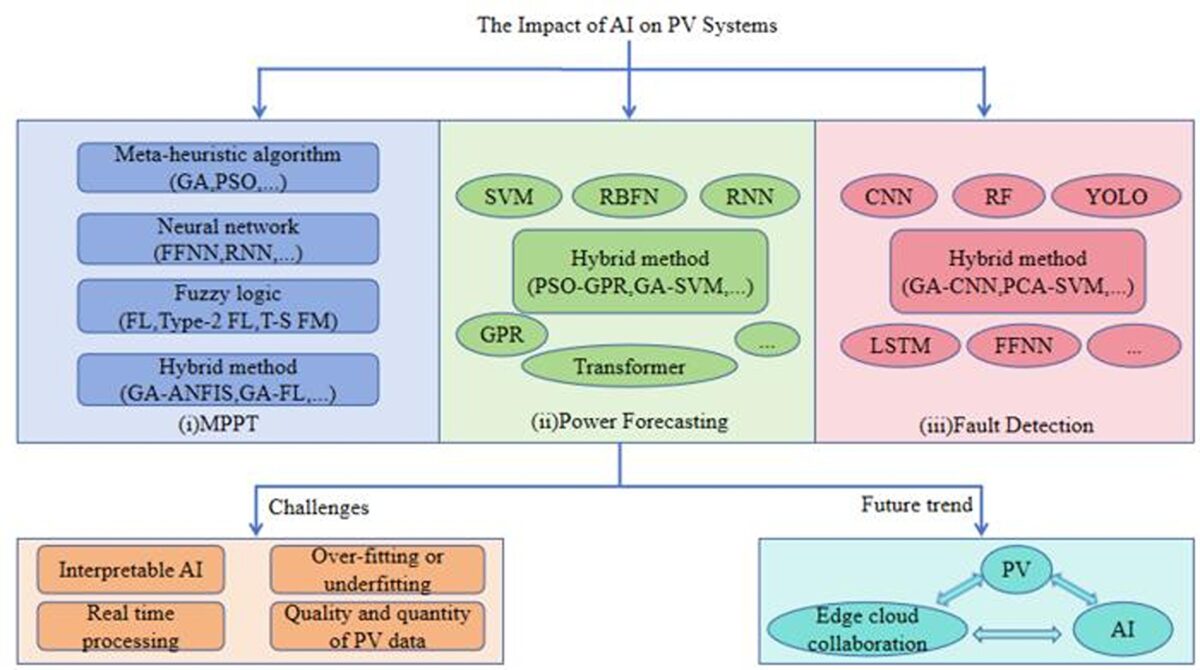AI in photovoltaic systems – pv magazine International – pv magazine International
Researchers from Chinese and Malaysian universities have compared studies demonstrating the use of artificial intelligence to solve PV integration problems. They say that AI will bring revolutionary improvements in the efficiency, reliability and predictability of solar power generation.
June 14, 2024
Researchers from China and Malaysia have explored the impact of artificial intelligence on PV generation systems and related applications from a global perspective. They focused on reviewing AI applications in maximum power point (MPP) tracking, power forecasting, and fault detections within PV systems.
The researchers analyzed publications showing how AI techniques solve MPP tracking issues, compiling single and hybrid AI methods and exploring their advantages and disadvantages. For power forecasting, AI algorithms can detect deviations from normal operations that may indicate faults or anomalies, where manual inspection may not suffice.
“The overall message is an optimistic outlook on how AI can lead to more sustainable and efficient energy solutions,” said Xiaoyun Tian, a researcher at the Beijing University of Technology. “By improving the efficiency and deployment of renewable energy sources through AI, there is significant potential to reduce global carbon emissions and to make clean energy more accessible and reliable for a broader population.”
The paper also considers the challenges that arise as the operational efficiency of PV systems continues to improve, such as revised standards for achieving carbon neutrality, interdisciplinary cooperation and emerging smart grids.
Popular content
The researchers said the next steps should focus on advancing AI techniques for PV systems, implementing AI solutions in existing PV infrastructure, scaling up successful AI integration, developing supportive policies, increasing awareness of AI benefits, and aligning advancements with global sustainability targets.
“AI-driven techniques are essential for the future development and widespread adoption of solar-energy technologies globally,” added Tian.
The research paper, “A Comprehensive Review of Artificial Intelligence Applications in the Photovoltaic Systems,” is available in the latest edition of CAAI Artificial Intelligence Research. The team consists of researchers from Beijing University of Technology, Chinese Academy of Sciences, Hebei University, and Universiti Tunku Abdul Rahman.
This content is protected by copyright and may not be reused. If you want to cooperate with us and would like to reuse some of our content, please contact: ed*****@pv*********.com.


